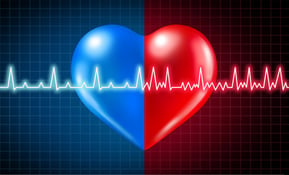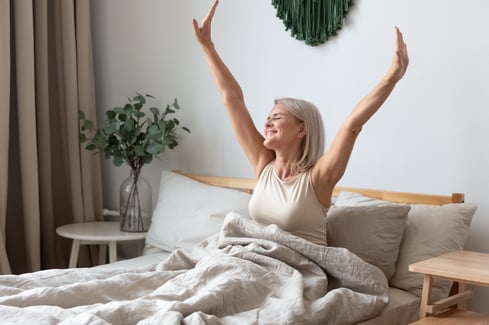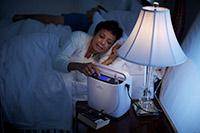Recognizing Symptoms of Low Oxygen Saturation
If your saturation levels go down through the night, chances are you won’t realize it at the time but if you experience any of these symptoms it’s important that you discuss them with your doctor.
- Waking Gasping for Breath

- Headaches in the Morning
- Rapid Breathing
- Bluish Tinge on your Fingertips or Lips
- Snoring
- Feeling Sleepy During the Day
- Racing Heart
- Waking Yourself Coughing or Choking
- High Blood Pressure
- Memory Loss or Confusion
What Causes Oxygen Deprivation?
There are many factors that can cause lowered oxygen saturation. They Include:
- Sleep Apnea, which is probably the most common.
- COPD
- Pulmonary Fibrosis
- Heart Disease
- Interstitial Lung Disease
- Anemia
- Some Medications
What you Need to Know About Supplemental Oxygen While Sleeping
Sleep Mode or Intelligent Delivery
If your doctor or respiratory therapist has prescribed oxygen when sleeping you will need to make sure that you get one that is equipped with sleep mode or intelligent delivery. These portable oxygen concentrators have been designed to keep your oxygen saturation levels normal as you sleep.
When you sleep your breathing because slower and sometimes more shallow. A machine with intelligent delivery such as the Inogen One G5, will sense this breathing change and automatically increase the oxygen dose to keep the patient properly saturated.
Lower Decibel Levels
If you or your partner are light sleepers you will want to ensure that the concentrator you choose is quiet so that it doesn't keep you up at night. Concentrators have been rated for decibel levels. They are rated for use at a mid range setting. Most concentrators are fairly quiet and are in the mid 30 decibel range. For reference, regular breathing is about 10 decibels. Rustling leaves are 20 decibels and an average conversation is about 50 decibels.
The other option is that you can use longer tubing at night so that you can place your machine further away from your bed, possibly in a closet or out in the hall.
CPAP or BiPAP Use
If you have been diagnosed with sleep apnea and require a CPAP or BiPAP device you will need to get a concentrator that can provide continuous flow. A pulse flow only concentrator will not be able to operate sleep apnea devices.
Benefits of Using Oxygen While Sleeping

Better Quality Sleep is the first and most important benefit. Low oxygen levels during the night can give you a headache otherwise disrupt your sleep.
Improved Daytime Functioning is the product of better sleep. Oxygen levels that drop during the night can cause you to wake feeling groggy and out of sorts. Poor sleep quality can also affect cognitive abilities.
More Positive Mental Outlook because you're just feeling altogether better when you're well rested. No one wants to go through the day feeling tired and cranky.
Decreased Risk of Serious Health Problems such as high blood pressure, heart failure, and stroke have been linked to both poor sleep quality as well as regular hypoxemia, or low oxygen levels.
Shopping for a Concentrator
Your doctor will write you a prescription for oxygen if they deem it necessary to keep your saturation levels at proper levels. In order for us to ascertain which concentrator is best, you will need to know the flow rate and if you require pulse or continuous flow. Remember, sleep apnea devices require a continuous flow device.
In the past most patients were placed on heavy, and cumbersome tanks but in recent years the use of portable concentrators has become more common.
Portable oxygen units are safer and more versatile. Improved technology also ensures that the patient stays properly titrated, even while sleeping. They also allow for travel, as tanks are no longer allowed on airplanes and can be dangerous in cars.




